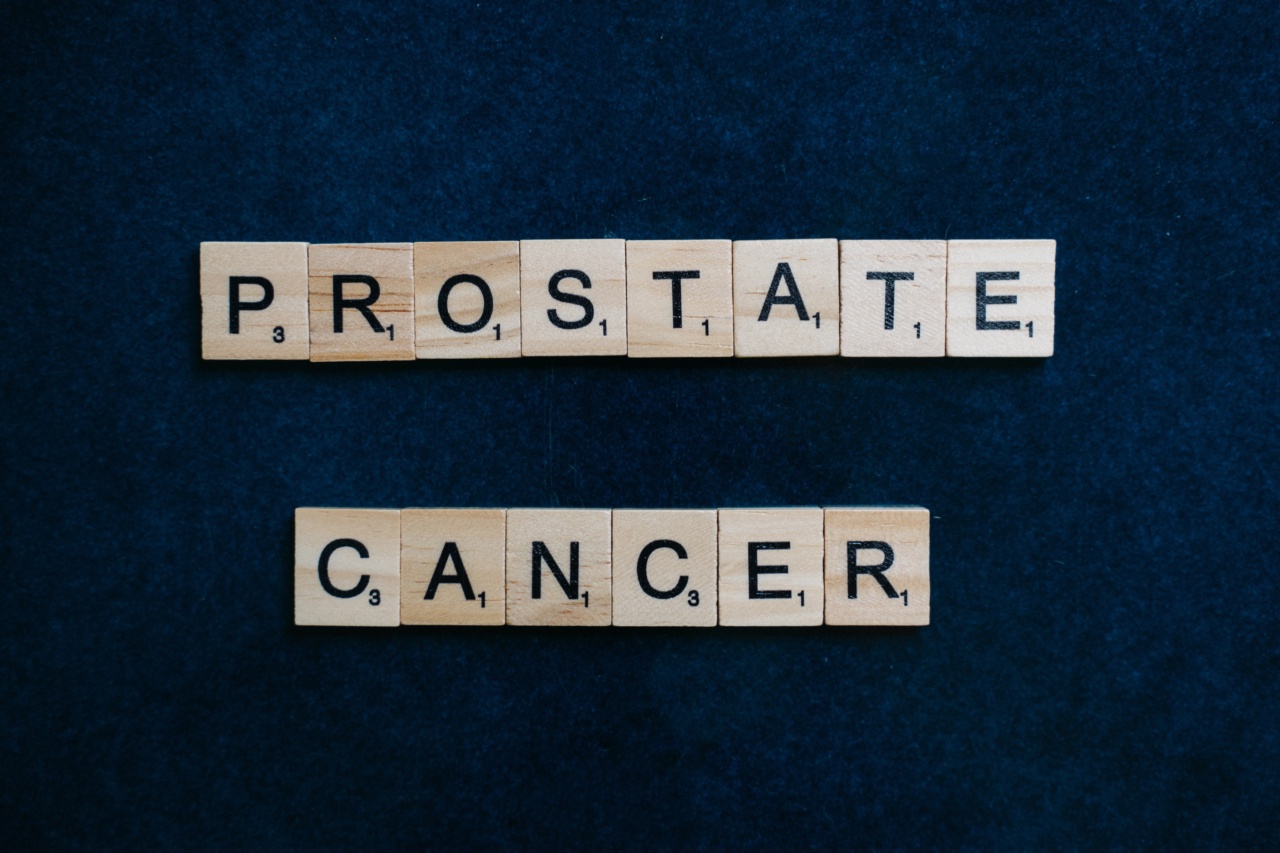Prostate cancer is a common form of cancer that affects men.
While factors like age, family history, and genetics play a role in determining one’s risk of developing prostate cancer, there are several lifestyle changes and strategies that can help reduce this risk. By making informed choices and taking proactive steps, you can potentially lower your chances of being diagnosed with prostate cancer. This article aims to provide you with valuable tips and strategies to minimize your prostate cancer risk.
1. Eat a Healthy Diet
Your diet has a significant impact on your overall health, including your risk of developing prostate cancer. To reduce your risk, focus on eating a balanced diet that includes plenty of fruits, vegetables, whole grains, and lean proteins.
Avoid or limit the intake of processed foods, sugary snacks, and high-fat meals.
2. Incorporate Superfoods
Certain foods have been associated with a reduced risk of prostate cancer due to their high content of antioxidants and other beneficial compounds.
Incorporating superfoods like tomatoes, broccoli, green tea, turmeric, pomegranates, and legumes into your diet can provide you with added protection.
3. Maintain a Healthy Weight
Being overweight or obese increases the risk of various health conditions, including prostate cancer. Engaging in regular physical activity and maintaining a healthy weight can help mitigate this risk.
Aim for at least 150 minutes of moderate-intensity exercise or 75 minutes of vigorous exercise per week.
4. Stay Hydrated
Drinking an adequate amount of water throughout the day is essential for maintaining optimal health. Research has suggested that staying adequately hydrated may help reduce the risk of developing prostate cancer.
Aim to drink at least 8 cups of water daily.
5. Limit Alcohol Consumption
Excessive alcohol consumption has been linked to an increased risk of various types of cancer, including prostate cancer. If you choose to drink, do so in moderation.
The American Cancer Society recommends limiting alcohol intake to no more than two drinks per day for men.
6. Quit Smoking
Cigarette smoking has been linked to an increased risk of numerous cancers, including prostate cancer. Quitting smoking is one of the most effective strategies for reducing your cancer risk as well as improving overall health.
Seek support or consult a healthcare professional to develop a plan for quitting.
7. Increase Fiber Intake
A high-fiber diet has been associated with a lower risk of prostate cancer. Incorporate fiber-rich foods like whole grains, fruits, vegetables, and legumes into your meals to maintain a healthy digestive system and potentially reduce your risk.
8. Consume Healthy Fats
Not all fats are created equal. Consuming healthy fats, such as those found in avocados, nuts, seeds, and oily fish like salmon, can be beneficial for your overall health and potentially lower your risk of developing prostate cancer.
9. Regular Check-ups and Screenings
Early detection plays a vital role in successfully treating prostate cancer. Regular check-ups, including prostate-specific antigen (PSA) blood tests and digital rectal exams (DRE), can help detect any abnormalities or signs of cancer at an early stage.
Consult with your healthcare provider to determine the appropriate screening schedule based on your age and risk factors.
10. Educate Yourself
Stay informed about prostate cancer by educating yourself about the disease, its risk factors, and symptoms. Being aware of the signs and symptoms can help you identify any potential issues and seek medical attention promptly.
Reducing your prostate cancer risk is possible by adopting a healthy lifestyle, making wise choices, and staying proactive about your health.
By implementing these tips and strategies into your daily routine, you can take charge of your well-being and potentially reduce your risk of developing prostate cancer.




























